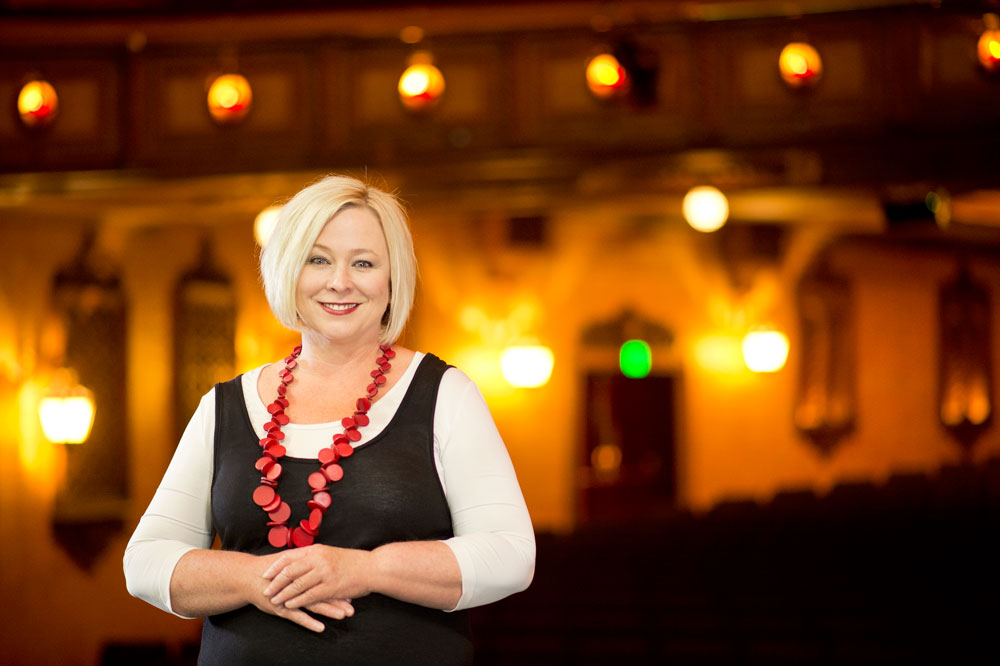Researcher Highlights
Drama: a dynamic driver of 21st century learning
Dr Christine Hatton
A lost culture of frozen people is discovered underwater in the Pacific Ocean. They were frozen in time on the edge of a catastrophic environmental disaster, a crisis that scientists and archaeologists of the future grapple to fully understand. The history of these people had been erased. Who were they, these people of Ardus Unda? What happened to them? Can they be restored to life? Can we learn from their past to inform the present and the future?

This was the fictional context faced by drama students and teachers from schools across the world who worked together to co-construct a story as part of an innovative creative project exploring the possibilities of using digital technologies in drama education.
The project connected students and teachers in a shared drama learning experience, entitled The Water Reckoning Project. It used a combination of live drama workshops and digital postings from sites in Sydney, Noosa, Athens, Seattle and Singapore.
Dr Christine Hatton, a lecturer in the School of Education, led the Sydney project and research study with co-researchers from the University of Western Sydney (UWS) and Macquarie University. The study focused on drama, technology and sustainability education.
The Water Reckoning Project drew on the work of pioneering drama practitioner Dorothy Heathcote and reinterpreted her strategy of 'Rolling Role' for the 21st century classroom context. This strategy, where students work across subject areas on a shared dramatic narrative, lent itself well to adaptations with technologies and digital platforms.
The project was part of an international push to re-consider the innovative practice and strategies of Heathcote. Each group of students interpreted the Ardus Unda story through drama in relation to their own locations and imaginations, and in doing so, made important local connections between the real and the fictional contexts. It also enabled students to interact with other sites and the creative content made by students from across the world.
"This project contributes to the field of drama education in terms of the possibilities and limitations it highlights when working interactively with technologies across different sites and time zones," said Hatton.
"It has led us as researchers to consider the nature of a mediated creative learning experience and how digital technologies alter and expand the lived experience of drama learning processes. This kind of work allows new collaborations and audiences for classroom drama work, which is exciting for teachers, students and researchers alike."
|
Hatton has a longstanding interest in the nature of teaching and learning in drama and the arts – drawn from her PhD study on transformative learning and teaching in drama. She is interested in the way research can capture and allow analysis of the nuances of what drama teachers do, what works and what makes a difference to students' lives in complex times and contexts.
"Teaching drama is unlike teaching any other school subject; it is experiential learning involving each of the senses, body language and emotion and is often a way of engaging students who have been otherwise alienated by the rest of the curriculum," explains Hatton.
"Drama gives students a whole range of skills and experiences. In a performing art like drama you have to be really present, it relies on complex forms of collaboration and aesthetic awareness and students have to grapple with multiple things all at once in the moment of doing it."
Hatton is also leading a major three-year Arts NSW/ Department of Education and Communities research study, Evaluating the impacts of the Fresh AIR Initiative 2014 - 2016, conducted with her co-investigator Associate Professor Mary Mooney from UWS. This studyanalyses the nature and impact factors of sustained artists in residence projects in six schools across Sydney.
The University of Newcastle acknowledges the traditional custodians of the lands within our footprint areas: Awabakal, Darkinjung, Biripai, Worimi, Wonnarua, and Eora Nations. We also pay respect to the wisdom of our Elders past and present.
